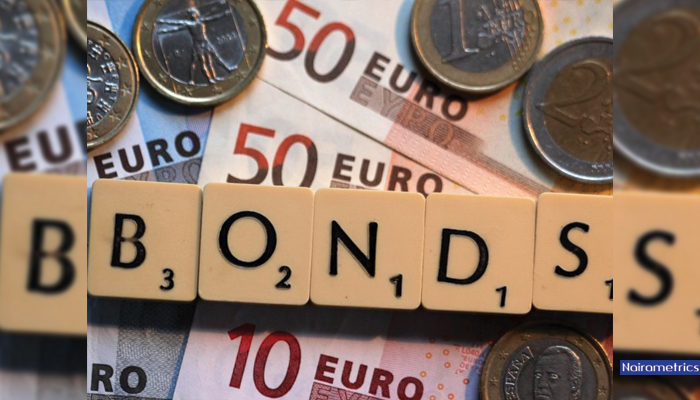Despite the increase in the benchmark monetary policy rate (MPR) by the Central Bank in May 2022, Nigeria’s Eurobond yields for long term instruments are still hovering above 10%, data from the Debt Management Office (DMO) shows.
After holding the MPR constant at 11.5% for about two and a half years, the Monetary Policy Committee (MPC) of the Central Bank of Nigeria (CBN), raised the benchmark interest rate by 150 basis points to 13% in response to global inflationary pressures, and dwindling foreign exchange in the economy.
Some market analysts had hoped that investors in Nigeria’s fixed income market may benefit from the rate hike, with adverse effects expected in the equities market, but this is yet to be seen.
For instance, Nigeria’s Eurobond Yield with a maturity of 2027 closed trading 31st of May 2022 at a yield of 9.79% from 8.95% recorded as of the end of April 2022. The Eurobond has a total face value of $1.5 billion and was borrowed at a coupon of about 6.5% when it was initially issued.
Bond yields have risen in the last few weeks driven by the increase in US Interest rates by the US Federal Reserves. The US Fed commenced rate hikes in response to the record-high inflation rate experienced in the world’s largest economy.
The Federal Government had two days ago shelved its plans to raise about $950 million selling overseas bonds, owing to unfavourable market conditions during the time frame approved for the fundraising, the Minister of Finance, Zainab Ahmed, had said.
Ahmed had said in April that the government planned to sell as early as May its second external debt this year to help plug fiscal deficits. The planned $950million bond sale would account for the balance of $6.1 billion in overseas borrowings planned for 2022 after it raised the second tranche of $1.25 billion in March.
Bloomberg reported Ahmed as saying in an interview on the sidelines of the Islamic Development Bank meetings in Egypt, “We were not able to do that because the market pricing was not good and also the approval period for us has closed. The approval period was up to May 31, 2022, so we are not going to be able to take that one anymore.”
Africa’s biggest crude producer was one of the first sovereigns to tap the Eurobond market after the start in late February of Russia’s war on Ukraine, which stoked commodity prices and inflation just as the US Federal Reserve raised interest rates.
Nigeria’s seven-year bond in March was priced to yield 8.375%, compared to a similar maturity raised about eight months ago with a coupon of 6.125%. Notably, according to information culled from the DMO daily report, Nigeria’s $750 million Jan 2049 Eurobond currently prints a yield of 11.365% as of 31st May 2022.
How this affects Nigeria
- The uptrend in Nigeria’s Eurobond yield occurs when investors in the international debt market sell Nigerian Eurobond, triggering a fall in the prices of the bonds. In other words, there is an inverse relationship between bond prices and their yields.
- The rise in Eurobond yields means that Nigeria will pay huge interest in order to incentivise market players to buy its Eurobond.
- However, Nigeria is in dire need of foreign exchange in the economy. With other sources not performing at desired levels, the international market seems like the fastest means to obtain forex in order to cushion the surging demand.
What the analysts are saying
Lukman Otunuga, Senior Research Analyst at FXTM, said: “It may be worth keeping an eye on the US inflation report on Friday which is expected to show consumer prices unchanged at 8.3% in May, matching the figure seen in April.
If the report meets or falls below expectations, this may suggest that US inflation may have peaked. Such a development could fuel speculation around the Fed taking a step back from its ultra-aggressive stance – weakening the dollar. A weaker greenback could provide emerging market currencies with some breathing room.
Speaking of currencies, the Naira opened at N416 against the dollar on Monday after closing around N415.50 on Sunday. On the parallel exchange, the Naira traded at around N605 against the dollar. With inflationary pressures making a return and prices expected to rise ahead of the general elections in 2023, this could translate to Naira’s weakness”.
